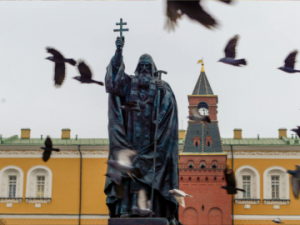
Currency controls may be on the cards for Russia after the Russian Central Bank announced that it would stop using unlimited foreign interventions to prevent against rapid devaluation.
Over the past few weeks, the bank has been selling up to $2.5bn per day to keep the economy afloat and, in a drastic move, even raised interest rates by 150 basis points, to 9.5%. These interventions have not slowed its decline and the bank has now resolved to spend no more than $350m a day, according to the Financial Times.
The rouble has lost almost a quarter of its value since the start of the year and suffered an immediate 2.6% drop after the bank’s announcement – although this recovered slightly to 1.77%.
The decision to make the rouble “free floating” was initially slated for the end of the year, but sanctions and falling oil prices have forced the central bank’s hand.
“The changes make shorting the rouble more difficult and more expensive,” commented Vladimir Tikhomirov, chief economist at BCS Financial. “In the initial period, over the next few days or even weeks, we are likely to see even more volatility, but then the currency is bound to stabilise.”









